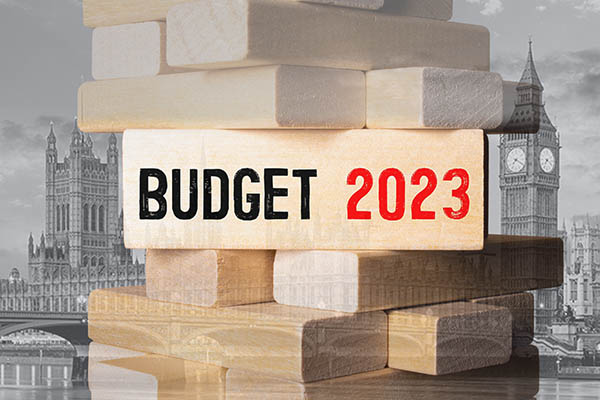
Spring Budget 2023 Roundup. Will it provide stability and growth?
Posted on 20th March 2023 by Phil Ainley
“In November we delivered stability, today it is growth”, Mr Hunt, Chancellor for the Exchequer, 15 March 2023, beginning his announcement of the Spring Budget 2023.
Despite its good intentions, the market turbulence created by the previous Chancellor’s mini-Budget in the Autumn of 2022, which was subsequently reversed by current Chancellor, Jeremy Hunt, undoubtedly helped to push the UK economy closer to recession.
While recent data from the Bank of England shows that the economy is keepings its head above water, in real terms we’ve been in a recession since the turn of the new year. The UK is the only G7 economy which is still smaller than it was before the Covid-19 pandemic, even after growing 4% in 2022.
The chancellor has said the UK has narrowly avoided falling into recession, after the economy saw zero growth between October and December. Jeremy Hunt also said, however, that more needs to be done to tackle inflation (1).
For these reasons, the Chancellors Spring Budget, his first Budget which has been dubbed the “back to work Budget,” was one of the most important for many years, as the country awaited his plans to boost the economy and help to put more money back into our pockets.
Mr Hunt categorized his Budget into four parts based on the government’s four pillars of industrial strategy: Enterprise, Employment, Education, and Everywhere.

In our Spring Budget 2023 roundup, we look at what was announced and how it could affect you, including:
- Government debt, inflation and economic growth
- Personal tax
- Business tax
- Energy bills support
- Childcare support, universal credit and back to work plans
- Fuel, alcohol and tobacco
- Pensions
- Wages
- Nuclear power and a greener economy
- Defence
- Any help for the self-employed?
- Budget summary
What is the Budget?
The Budget, or Financial Statement, is a statement made to the House of Commons by the Chancellor of the Exchequer covering the nation’s finances and the Government’s proposals for changes to taxation.
The Budget also includes forecasts for the economy by the Office for Budget Responsibility (OBR).
Does the Budget affect all parts of the UK?
Certain parts of the Budget affect the whole of the UK, such as defence spending.
Other aspects of the Budget do not, due to a certain level of devolvement to Scotland, Wales and Northern Ireland.
Scotland has powers to raise income tax, which means its rates can differ from the rest of the UK. The Scottish government also published its Budget on 15 December 2022 for the year 2023-24.
A key point with regard to the different nations of the UK is, if the government announces extra spending on areas that only affect England, the other nations get an equivalent extra sum of money to spend as they choose, according to a rule called the Barnett formula (2).
Government debt, inflation and economic growth
The chancellor says his budget will achieve growth by “removing obstacles that stop businesses investing; by tackling labour shortages that stop them recruiting; by breaking down barriers that stop people working; and by harnessing British ingenuity to make us a science and technology superpower.”
- The UK inflation rate is predicted to fall to 2.9% by the end of 2023, down from 10.7% in the fourth quarter of 2022. That far outstrips the governments aim of halving inflation this year.
- The Office for Budget Responsibility (OBR) predicts the UK will avoid a recession, but the economy will shrink by 0.2%, slightly better than the Autumn prediction of 1.4%. While the chancellor said the UK will avoid a “technical recession”*.
- Economic growth of 1.8% is predicted for 2024, 2.5% predicted for 2025, and 2.1% in 2026.
- The underlying UK debt is forecast to be 92.4% of Gross Domestic Product (GDP) in 2023, which will rise to 93.7% in 2024.
- Chancellor announced 12 new investment zones. “12 potential Canary Wharf’s”. They will be spread across the West Midlands, Greater Manchester, the Northeast, South Yorkshire, West Yorkshire, East Midlands, Teesside and Liverpool. There will also be at least one in each of Scotland, Wales and Northern Ireland.
*It becomes a “technical recession” if the economy shrinks for two seasons in a row (two successive quarterly periods). It’s possible to avoid the “technical” definition if the economy is struggling if it shrinks in the Spring and the Summer but rises in the Summer.
Personal Tax
- The plan to increase corporation tax from 19% to 25% will go ahead as planned. However, the 25% rate will only apply to businesses recording profits over £250,000, with the Chancellor stating that “only 10% of companies will pay the full 25%”.
- Key points not announced in the Budget, but no less important includes:
- Council tax will rise by up to 5% in some areas.
- Vehicle Excise Duty (car tax) will rise in line with Retail Price Index (RPI) inflation of 10.1% in April.
Business Tax
- The plan to increase corporation tax from 19% to 25% will go ahead as planned. However, the 25% rate will only apply to businesses recording profits over £250,000, with the Chancellor stating that “only 10% of companies will pay the full 25%”.
- Companies with profits between £50,000 and £250,000 will pay between 19% and 25%.
Energy bills support
- The chancellor confirmed the Energy Price Guarantee will remain at £2,500 for the typical household for the next three months, until the end of June 2023. He says this will save the average family a further £160 on top of support measures already announced.
- £200m to bring energy charges for prepayment meters into line with prices for customers paying by direct debit – affects 4m households.
- Mr Hunt talks about the “risk to swimming pools” and other community facilities as he lays out a £63m fund to “keep our public leisure centres afloat”, to help with rising swimming pool heating costs, and invest to become more energy efficient.
Childcare support, universal credit and back to work plans
- Government to fund more wraparound care for school-age children – Mr Hunt says the government will fund schools and local authorities to increase supply of wraparound care so all parents of school-age children can drop their children off between 8am and 6pm. He says the ambition is that all schools will start to offer a wraparound offer, either on their own or in partnership with other schools, by September 2026.
- Parents on benefits to get more money for childcare upfront – Parents on Universal Credit will now receive up to £951 for one child and £1,630 for two children per month which will now be paid upfront.
- Hunt says children in care should be given all possible help to make a normal working life possible when they reach adulthood. Often, he adds, they depend on foster families, so he is nearly doubling the Qualifying Care Relief threshold to £18,140 which will mean a tax cut for a qualifying carer averaging £450 a year.
- He is also increasing funding for the Staying Close program to help more care leavers into work.
- Boost for childcare suppliers – The chancellor says he will pilot incentive payments of £600 for childminders joining the profession – £1200 if they join through an agency.
- He’ll increase the funding to nurseries £204m from this September rising to £288m next year – an average of 30% increase in the two-year-old rate. The minimum staff to child ratio will change from 1:4 to 1:5 for two-year-olds in England, though this will remain optional.
Fuel, alcohol and tobacco
- Fuel duty frozen – the 5p cut to fuel duty on petrol and diesel, due to end in April, will be kept for another year… but will customers see a drop in prices at the pumps?
- Alcohol taxes to rise in line with inflation from August, with new reliefs for beer, cider and wine sold in pubs. The Chancellor said that from 1 August 2023 the duty on draught products in pubs will be up to 11p lower than the duty in supermarkets, “a differential we will maintain as part of a new Brexit pubs guarantee”. This is in addition to changes already due to come into effect in August. “British ale may be warm, but the duty on a pint is frozen”, he adds.
- The tax on tobacco will increase by 2% above inflation, and 6% above inflation for hand-rolled tobacco.
Pensions
- Cap on amount workers can accumulate in pensions savings over their lifetime before having to pay extra tax (currently £1.07m) to be abolished.
- Tax-free yearly allowance for pension pot to rise from £40,000 to £60,000 – having been frozen for the previous nine years. Individuals will continue to be able to carry forward unused annual allowances from the three previous tax years.
- The Money Purchase Annual Allowance (MPAA) will be increased from £4,000 to £10,000, while the minimum tapered allowance with also increase from £4,000 to £10,000, from 6 April 2023. Currently, if you take any money from your pension, you can only put £4,000 back in. This will increase to £10,000 (3).
Wages
What does the Spring Budget mean for your income?
There were no announcements regarding National Insurance Contributions (NIC), but for the upcoming 2023/24 tax year the following rates and allowances are in place:
- Employment Allowance, which reduces an employer’s NIC bill, will remain at £5,000 for the year.
- NIC thresholds stay the same, meaning an employee can earn £242.00 per week without paying any Class 1 NIC.
- Class 4 NIC’s, which are payable by self-employed people, only become due on profits which exceed £12,570.00.
- Self-employed people also must pay Class 2 NIC if their business profits exceed £12,570.
National Minimum Wage
From 1 April 2023 the National Minimum Wage hourly wages rates are:
- Employees aged 23 and over will see an increase from £9.50 to £10.42 per hour.
- Employees aged between 21-22 will see an increase from £9.18 to £10.18 per hour.
- Employees aged between 18-20 will see an increase from £6.83 to £7.49 per hour.
- Employees aged between 16-17 will see an increase from £4.81 to £5.28 per hour.
- Apprentices up to the age of 19 or in their first year of apprenticeship, will increase from £4.81 to £5.28 per hour (unless a rate is specified in the apprentice’s training contract).
Nuclear power and a greener economy
The chancellor has now turned to measures to reduce the carbon emission that contribute to climate change.
- The government has committed £20bn investment over next two decades on low-carbon energy projects, with a focus on carbon capture and storage. “I am allocating up to £20bn of support for the early development of carbon, capture, usage and storage, starting with projects from our East Coast to Merseyside to North Wales.”
Mr Hunt went on to say this will support up to 50,000 jobs, attract private sector investment and help capture 20-30 million tonnes of CO2 per year by 2030.
- Nuclear energy is to be classed as environmentally sustainable to attract investment incentives similar to renewable energy., with the promise of more public funding.
- He also says he will extend the Climate Change Agreement scheme for two years to allow eligible businesses £60m of tax relief on energy efficiency measures.
- Great British Nuclear being launched to bring down costs and help create 25% of our electricity (up to 24 GW of electricity) by 2050.
- Investment to be boosted via the launch of the first competition for small modular nuclear reactors (SMRs). Funding to be made available if the technology proves viable.
Defence
- Total of £11bn to be added to defence budget. The chancellor confirms the government will add a total of £11 bn to the UK’s defence budget over the next five years and it will be nearly 2.25% of GDP by 2025. “We were the first large European country to commit to 2% of GDP for defence and will raise that to 2.5% as soon as fiscal and economic circumstances allow”, he says.
Was there any help in the Budget for the self-employed?
While this Budget announced several policies that could offer continued support to households, it has received criticism for failing to deliver significant measures to support self-employed workers.
There was no mention of IR35 in this Budget. However, the government has committed to more stringent measures to tackle tax fraud by consulting on the introduction of a new criminal offence for promoters of tax avoidance. The consultation will coincide with increased funding for HMRC to tackle tax debt (4).
Spring Budget 2023 summary
This Budget was clearly focused on boosting business investment and persuading those who have left their jobs to return to the workforce (5).
- More support for business investment and energy bills, plus a boost to labour supply to boost employment and output in the medium-term.
- National debt will only fall by very a narrow margin in five years’ time.
- No specific help for self-employed business owners and freelance contractors, with no mention of IR35.
- Increases to wages.
- Increased funding for green energy.
- Increased help for pensioners.
- Improvements to childcare support.
Sources:
- https://www.bbc.co.uk/news/av/business-64593971
- https://www.bbc.co.uk/news/uk-northern-ireland-38077948
- https://www.independent.co.uk/money/martin-lewis-savings-pension-b2304177.html
- https://www.contractorweekly.com/tax-a-ir35-news/spring-statement-alarming-lack-of-support-for-self-employed/
- https://www.bbc.co.uk/news/business-64789405
https://www.parliament.uk/about/how/role/check-and-approve-government-spending-and-taxation/the-budget-and-parliament/
https://www.reuters.com/world/uk/uk-launches-competition-support-small-nuclear-reactors-2023-03-15/
https://www.theguardian.com/uk-news/2023/mar/15/budget-2023-what-it-means-for-people-on-a-range-of-incomes
https://www.david-allen.co.uk/national-insurance-and-national-minimum-wage-spring-budget-2023/
Related articles:
Useful Links

Professional Indemnity Insurance
Protects against claims of alleged negligence in your professional services, advice and designs.

Public Liability Insurance
Protects against claims of injury to third-parties or damage to a third-party's property.

Employers' Liability Insurance
A legal requirement for anyone employing staff. Protects your business in-case an employee is injured at work.

Cyber Insurance
Covers your business in the event of a malicious attack on your computer systems and data.
